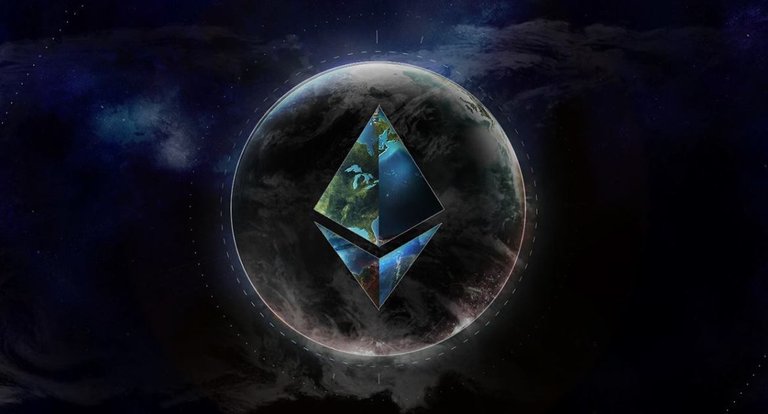
Atherom now stands again at a familiar crossroads. With the value of its digital currency "Ether" (and then its entry into a correction) in 2018, the constant thing is that users have lost money because of hacking attacks and software errors, as well as human errors. These issues have in the past divided the platform into rival forces and left discussions hanging on and there are tensions, as the latest activity on #GitHub is emerging again.
The debate came back through the chat channel following the loss of (531,000) Ether from #Parity last year. In particular, the Forum has renewed the issue of planning how the proposals for the recovery of funds could be consolidated in order to facilitate their application. This is the second largest action taken by a group of developers after the first proposal to make several modifications to the software, which was rejected by users of the case.
Led by developer Dan Viver of #Musiconomi (the source of an initial currency support process that saw a loss of 16,475 Ether during #Parity freezes) and other developers of the emerging company called #Tap-Trust, the document provides a way to make it easier for etherium users to implement the so-called " #state-change "or system-wide updates that will require all users to update their software to copies that reflect redistributed financial balances.
However, some strongly oppose such a mechanism as needed, going so far as to suggest that the idea is incompatible with the world's second-largest protocol of the world's cocaine. Indeed, the creator of the etherium Vittalik Puterin, the prominent developer Yuichi Hirai and the founder of Oaken Innovations, Hudson Jameson, rejected this idea, three of the six who manage the etherium repository and thus have the power of green light to make any changes they want on the platform.

Hirai, for example, argued that the proposal was in considerable disagreement with the theory of etherium, explaining in an article that he would "not move a finger" to make such changes. Similarly, the founder of the Mysterium browser, Alex van de Sandi, wrote on Github that changes to recover lost money should be rare and increasingly rare. However, these feelings are markedly contrasted with the feelings of developers who recommend key standards, such as Avery Chaudin of Parity, who told "CoinDesk" that:
"Changes are not a bad thing. It shows that we are a work platform
capable of healing from mistakes and bruises "
Detection of ancient scars All this is due to D26's breakthrough in 2016, which saw the theft of 3.6 million acres worth $ 2.6 billion at today's prices from user portfolios by someone who took advantage of a loophole in the platform's code. In response, developers implemented an update to reverse the theft of "DAO", although a large group of community members were against the idea. Because of the heated debate about this philosophy, a group of enthusiasts made a major split in the ethereal network to create a competitive currency, the Atheros Classic, which now has a market value of $ 1.7 billion.
That incident left many scars and a divided community and points of discussion that the ethers of etherium seem to want to talk about forever. After the "Parity" breakthrough occurred, the tensions surrounding the issue reappeared. While Parity was quick to provide a solution, there was one of those who asked users to update the software again, so many people criticized it. There was also a barrage of voices that felt that there should be no division. However, while the DAO split has prompted many etherium developers to make mistakes alongside caution, others retain a more liberal approach. Schinden told "CoinDesk" saying:
"I think a lot of people are afraid of repercussions, after the main DAO split.
It has caused a lot of bad news. But, quite frankly, this was a great step,
especially as it showed that the etherium community is not stubborn about the criterion (code is the law),
but is able to act very quickly "
It's not that simple Despite all of the above, some believe that there is an advantage to considering all options, and the new proposal promises that money returns can be realized in a simpler way, a process that can include both affected organizations and known and reliable influencers. However, recent comments have proved to be a constant place of criticism, seeing them as encouraging central management. In response to the remarks, Hirai wrote on "Github":
"Authors are still looking for a certain class of people who can make
judgments. They are looking for powers ... The individual points of failure
and the need for confidence are what etherium is trying to avoid "
Elsewhere, the leading voice behind the proposed transformation, the Viver of Musiconomi, urges the community to accept the risk of recovery when there is no "perceived negativity" and when the loss affects the user's livelihood and business. The problem of lost money was likely to worsen as adoption continued to grow, increasing the pressure on the fledgling network.
It is not Vever alone who has this view. While both "DAO" and "Parity" break-ups are high-profile events, it is said that money losses among users are relatively common. A typographical error in the title of the portfolio could erase the existence of funds completely, and attacks on unsecured smart contracts are fairly frequent. Schuden said in an interview on the need to update the code in response to errors:
Atheromium is not a static construct, but it is what we want it to be. It is always a transitional process.
This involves discussions, as well as conflict resolution. In the end there will always be a consensus "
++++++++
@aligotze37 upvote the post :D @skorek